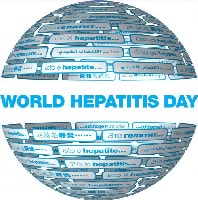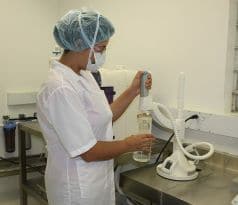The Ingredients of a Wellness Destination for the Caribbean

by Theo Chambers
KINGSTON, Jamaica – A Wellness Destination does not necessarily have to deal solely with the treatment of sick people. It also includes the development of the mind-body-soul. It encompasses the creation of Detoxnology retreats, where people travel to detox themselves from technology.
Caribbean Wellness Destinations should have meditation retreats, especially close to rivers and waterfalls. Each Caribbean Country should have at least 2 to 6 tea houses where locals and visitors can get from the farm to the table mint tea, fever grass tea, ginger tea, and even ganja tea.
In Branding the Caribbean as the premier wellness destination, the Caribbean way of life must incorporate a healthy lifestyle, or at least the options for those who want a healthy lifestyle menu.

The majority of doctors recommend to their clients the importance of adopting a healthy diet. The oxymoron of that recommendation is the fact that there are probably only 2% of all restaurants locally, regionally or internationally that are vegetarian or have healthy menu options.
The majority of time when you go to a restaurant and tell them that you are a vegetarian, the first thing that comes to their mind is Rabbit food: lettuce and tomatoes.
Ingredients of a Caribbean Wellness Destination
If the Caribbean region truly wants the title of The Wellness Destination of the World, then, here are the steps (ingredients) we must take in order to secure that title:
- All hotels, and restaurants that are members of their local Caribbean Hotel or Restaurant associations, must agree to have at least 10% of all their menu to be 100% vegetarian, gluten-free and dairy-free.
- Vegetarian dishes must consist of produce grown in the Caribbean to guarantee authentic tastes. Otherwise, it will defeat our chance of becoming the world’s Wellness Destination when our European-trained chef whose delicious vegetarian dishes are really European produced food.
- Caribbean destinations must capitalize on their seasonal products, especially our Naseberries, Mamee, June plums, Guavas, Mangoes, Apples, Pineapples, Oranges, Papayas, Coconut Water and Tropical Drinks.
- There should be a Wellness Team financed by the Caribbean body, to travel each island to ensure that the vegetarian choices or healthy lifestyle menus within the hotels and local restaurants who want to be listed as a Wellness Venue meet the highest standards. That team must identify the uniqueness of each Caribbean country and highlight those differences like the thermal bath pools in Dominica and Jamaica, St Lucia’s Volcanic rejuvenating mud and the Rasta Villages in Jamaica.
- Each Caribbean country should identify individuals who have been advocating and practicing a healthy lifestyle and help them get trained and certified in order to be listed as Wellness Culinary entrepreneurs.
- Help micro-finance those culinary entrepreneurs so they can open vegetarian restaurants in close proximity to major hotels and restaurants so our locals and visitors have choices within walking distance of hotels and major non-vegetarian restaurants, if possible.
Please note that at least half of those who are listed as Wellness Culinary venues, must not be Seventh Day Adventists so those restaurants are open on Saturdays and Sundays.
Caribbean Wellness Destination Farming
In order to make the above vision a reality, we must have a robust farming community which is producing for local consumption. This is in line with the principles of Sustainable Gastronomy where local foods are cultivated for local consumption.
The CARICOM common market concept must be adopted whereby we develop a produce agreement between the Caribbean countries that we will purchase from each other first, before we consider importing from outside the region.
I remember one day talking to my good friend Vincent Vanderpool-Wallace who shared with me an idea whose time has come. He said, “Theo, imagine all those cruise ships traveling from one island to the next whose cargo department might be half full or empty”.
“What if they become our partners in promoting the Caribbean as the Premier Wellness Destination by transporting our farmers’ food and natural organic spa and wellness products from one island to the next for pennies on the dollar?”
Caribbean Wellness Destination Special Dietary Requirements
- A well-designed wellness destination makes sure that hotel registration forms include questions as to that person’s special diet needs such as vegetarian, kosher, and if they are allergic to any food. My sister is allergic to peanuts, so her rooms never have peanuts and she does not eat in the dining room that serves peanuts. She makes sure that she asks whichever airline she is traveling on, if they serve peanuts. It’s that bad.
- Our Caribbean dishes should taste like “grandma’s cooking, well-seasoned with our local Caribbean and Indian spices.
- Our Spa products should be branded “Made In The Caribbean” and made from natural, organic products. We cannot truly say that the Caribbean is the Premier Wellness Destination when the products being used in our spas, are American and European Brands. Our spa products must be made from products grown and manufactured in the Caribbean. Even though a product might be made and labeled, manufactured in Jamaica,
Barbados or the Bahamas, we must white label a portion of those same products with Made In The Caribbean so we can distribute our products within the Caribbean without anyone feeling they are promoting a particular country’s Brand. - Many hotels around the world reserve certain sections of their hotels as wellness suites or rooms. Those rooms might be a few dollars more per night, but those guests are getting rooms with special environmental friendly amenities. Others have reserved entire sections to cater to the Jewish and vegetarian markets by making sure that a section of their kitchen is 100% kosher or non-diary.
When we produced the Caribbean Health and Wellness Conference and Expo in 2005-2008 at the Kingston Hilton Hotel, a healthy style breakfast was adopted where each item was color-coded and labeled with the number of calories in them.
The hotel also tapped into the expertise of one of our exhibitors, the world-famous Raw Food Scientist and Guru, Dr. Aris Latham, to train their chef how to prepare some of the best Five Star raw food cuisines.
Caribbean Wellness Destination Company Health-Related Absenteeism
Health-Related Absenteeism is one of the main causes of reduction in corporate profitability.
When companies think about cutting costs, they often miss the issue of health-related absenteeism, and how it affects their bottom line. When employees are absent, there is an “indirect cost” based on the reduction in productivity. Sometimes getting a temporary replacement, or having employees doing the task of those absent, is definitely a financial drain based on the fact that, the company is not running at full capacity.
If Health Related Absenteeism were a line item on a company’s P&L Statement, it would attract more attention.
Here are some causes of absenteeism that increase hidden costs:
- Salary paid to absent employees, and overtime paid to employees doing additional work
- Salary paid to temporary workers
- Administrative costs of managing absenteeism
- Lower profits due to decreased productivity
- Lower morale among employees who have to do absent coworkers duties.
Employers Proactive Wellness Programs
Some employees suffer from ailments such as:
Overweight, Blood Pressure, Diabetes, Depression. These lifestyle illnesses can be avoidable. When workplace-wellness is seen holistically, companies will have less absenteeism, larger employee engagement, and productivity, less unscheduled paid time off, fewer workers’ complain, larger employee retention, more employee satisfaction and morale, and obvious competitive advantage.
Employers should encourage, not coerce, their employees to participate in the company’s personalized wellness programs to minimize their risk of becoming chronically ill.
Examples of proactive wellness-minded companies
To be the leading Wellness Destination in the world, Caribbean companies and government agencies must adopt the wellness approach of entities such as Google, Amazon, Microsoft, Biotech and MindBody, by creating world class healthy lifestyle employee restaurants; internal gym and recreational centers for their staff; babysitting services for their employees, and once per week morning back massage or healthy exercise before work.
Today, insurance companies around the world are on the wellness path by paying for their members to attend gym classes. Yoga and Chiropractic visits. They understand that preventive care is a lot cheaper than medical cost for preventable illnesses.
Caribbean residents should be our best sales reps. This can be achieved by providing them with firsthand experience of what living a healthy lifestyle entails.
We must provide first-class wellness products and services to our own people, and invite the world to come and partake in our Caribbean Daily Natural Healthy Lifestyle.
We Live 24/7 Within Our Body, Therefore, The Most Expensive Things Should Go Inside of Our Body, Not On Top of It! – Theo Chambers





